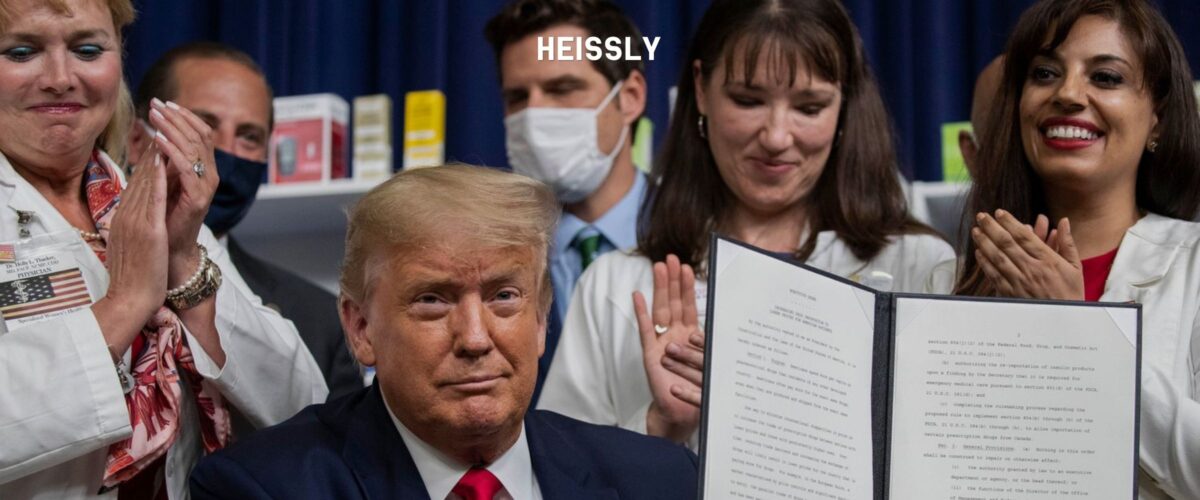Trump Draws the Line: “I Will Not Give $1.5 Trillion to Illegal Immigrants’ Healthcare”
Trump’s Statement
Former President Donald Trump recently made headlines with a strong declaration regarding government spending on healthcare for undocumented immigrants. According to his statement, Trump emphatically rejected proposals or claims that the U.S. should allocate $1.5 trillion to provide healthcare for illegal immigrants:
“I will not give $1.5 trillion to illegals’ healthcare. It’s unfair to American citizens, taxpayers, and legal immigrants who follow the rules. Our healthcare system must first serve Americans.”
This remark continues Trump’s long-standing position on immigration policy, border control, and fiscal conservatism, emphasizing his stance that undocumented immigrants should not receive the same government-funded benefits as citizens or legal residents.
Context and Background
1. Immigration and Healthcare Debate
Healthcare access for undocumented immigrants has been a recurring political flashpoint in U.S. politics:
-
Opponents argue that providing comprehensive healthcare to undocumented immigrants could strain public resources, increase costs for taxpayers, and incentivize illegal immigration.
-
Supporters argue that denying healthcare puts vulnerable populations at risk, increases emergency care costs, and undermines public health.
Trump’s claim about a $1.5 trillion cost appears to reference estimates of the broader economic impact if the federal government were to provide comprehensive healthcare coverage to the estimated 10–12 million undocumented immigrants in the U.S. However, fact-checkers note that precise numbers are difficult to verify and estimates vary widely. (cbpp.org)
2. Fiscal and Political Strategy
Trump’s statement serves several purposes:
-
Political Messaging: Reinforces his image as a protector of American taxpayers, especially among conservative voters who prioritize fiscal responsibility and immigration control.
-
Policy Signaling: Sends a message to lawmakers and political allies that any legislation expanding healthcare to undocumented immigrants would face strong opposition from him and his supporters.
-
Election Influence: Positions the immigration debate as central to future elections, especially in battleground states where immigration policy is a decisive issue.
3. Criticism and Support
Supporters:
-
Many Republicans and conservative groups applaud Trump’s stance as “standing up for American citizens” and protecting taxpayer dollars.
-
Anti-illegal immigration advocates see this as consistent with his previous policies, such as border wall funding and stricter enforcement measures.
Critics:
-
Democrats and immigration rights advocates criticize the framing as overly harsh and factually misleading, arguing that healthcare access is a moral and public health issue.
-
Experts caution that refusing care can increase long-term costs, as untreated conditions may lead to more expensive emergency interventions. (americanprogress.org)
4. Realistic Implications
Even though Trump made a headline-grabbing statement, it is largely rhetorical. The federal government currently restricts undocumented immigrants’ access to Medicaid and Affordable Care Act subsidies, except in emergencies. Expanding healthcare to this group would require substantial legislative changes and funding approval by Congress—an unlikely scenario given current political divisions.
However, Trump’s remarks could influence public discourse and voter sentiment, particularly among those concerned about immigration and fiscal policy.
5. Historical Perspective
Trump’s position is consistent with his administration’s prior policies:
-
The 2017 attempt to repeal the ACA included discussions of limiting healthcare access for undocumented immigrants.
-
Executive actions during his presidency focused on restricting benefits to non-citizens and limiting public charge protections.
This latest statement can be seen as a continuation of the same approach, reaffirming his hardline stance on immigration and government spending.
Conclusion
Donald Trump’s declaration that he “will not give $1.5 trillion to illegals’ healthcare” is more than a soundbite—it reflects a core principle of his political identity: prioritizing American citizens and taxpayers over undocumented immigrants when it comes to government-funded programs.
While the precise cost figure may be disputed and largely symbolic, the statement serves as a political rallying cry for his base, reinforces his consistent messaging on immigration, and continues to fuel one of the most contentious debates in U.S. politics: who deserves access to taxpayer-funded healthcare and at what cost.
